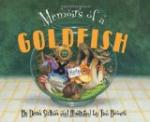In the last act there was a horserace cleverly devised to produce a convincing impression of reality. A rear section of the stage was made to revolve from left to right at such a rate that the horses were obliged to gallop at their utmost speed in order to avoid being swept behind the scenes. To enhance the realistic effect the scenery itself was made to move in the same direction. Thus, amid a whirlwind of excitement and the wild banging of the orchestra, the scenery flew by, and the horses, neck and neck, raced across the stage—without progressing a single foot.
And the thought came to me as I watched them that, after all, this horserace was very much like the life we all of us were living here in the city. The scenery was rushing by, time was flying, the band was playing—while we, like the animals on the stage, were in a breathless struggle to attain some goal to which we never got any nearer.
Now as I smoked my cigarette after breakfast I asked myself what I had to show for my fifty years. What goal or goals had I attained? Had anything happened except that the scenery had gone by? What would be the result should I stop and go with the scenery? Was the race profiting me anything? Had it profited anything to me or anybody else? And how far was I typical of a class?
A moment’s thought convinced me that I was the prototype of thousands all over the United States. “A certain rich man!” That was me. I had yawned for years at dozens of sermons about men exactly like myself. I had called them twaddle. I had rather resented them. I was not a sinner—that is, I was not a sinner in the ordinary sense at all. I was a good man—a very good man. I kept all the commandments and I acted in accordance with the requirements of every standard laid down by other men exactly like myself. Between us, I now suddenly saw, we made the law and the prophets. We were all judging ourselves by self-made tests. I was just like all the rest. What was true of me was true of them.
And what were we, the crowning achievement of American civilization, like? I had not thought of it before. Here, then, was a question the answer to which might benefit others as well as myself. I resolved to answer it if I could—to write down in plain words and cold figures a truthful statement of what I was and what they were.
I had been a fairly wide reader in my youth, and yet I did not recall anywhere precisely this sort of self-analysis. Confessions, so called, were usually amatory episodes in the lives of the authors, highly spiced and colored by emotions often not felt at the time, but rather inspired by memory. Other analyses were the contented, narratives of supposedly poverty-stricken people who pretended they had no desires in the world save to milk the cows and watch the grass grow. “Adventures in contentment” interested me no more than adventures in unbridled passion.




